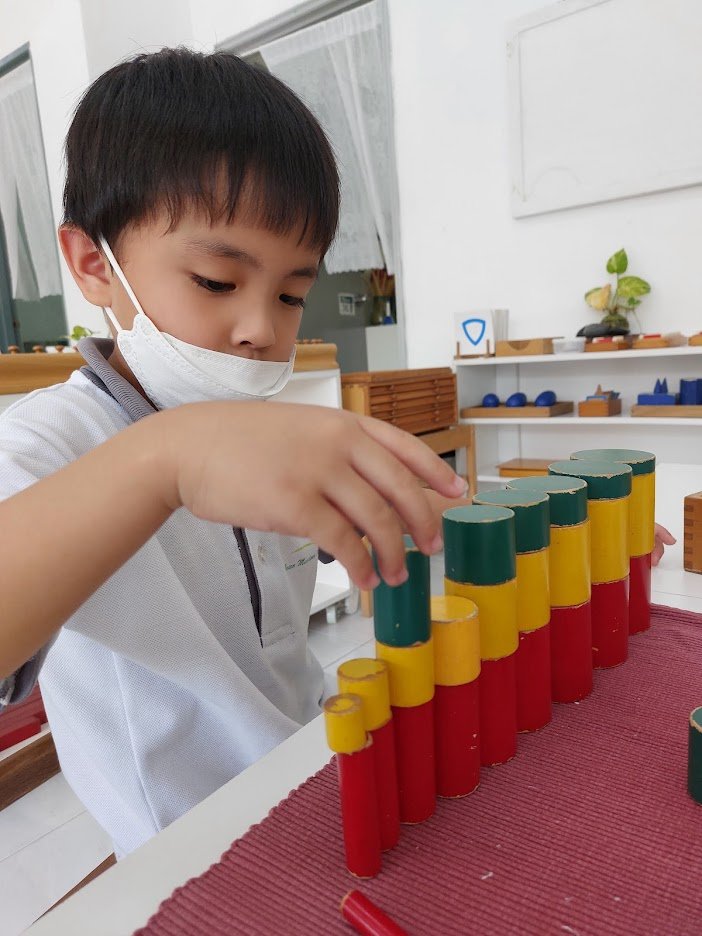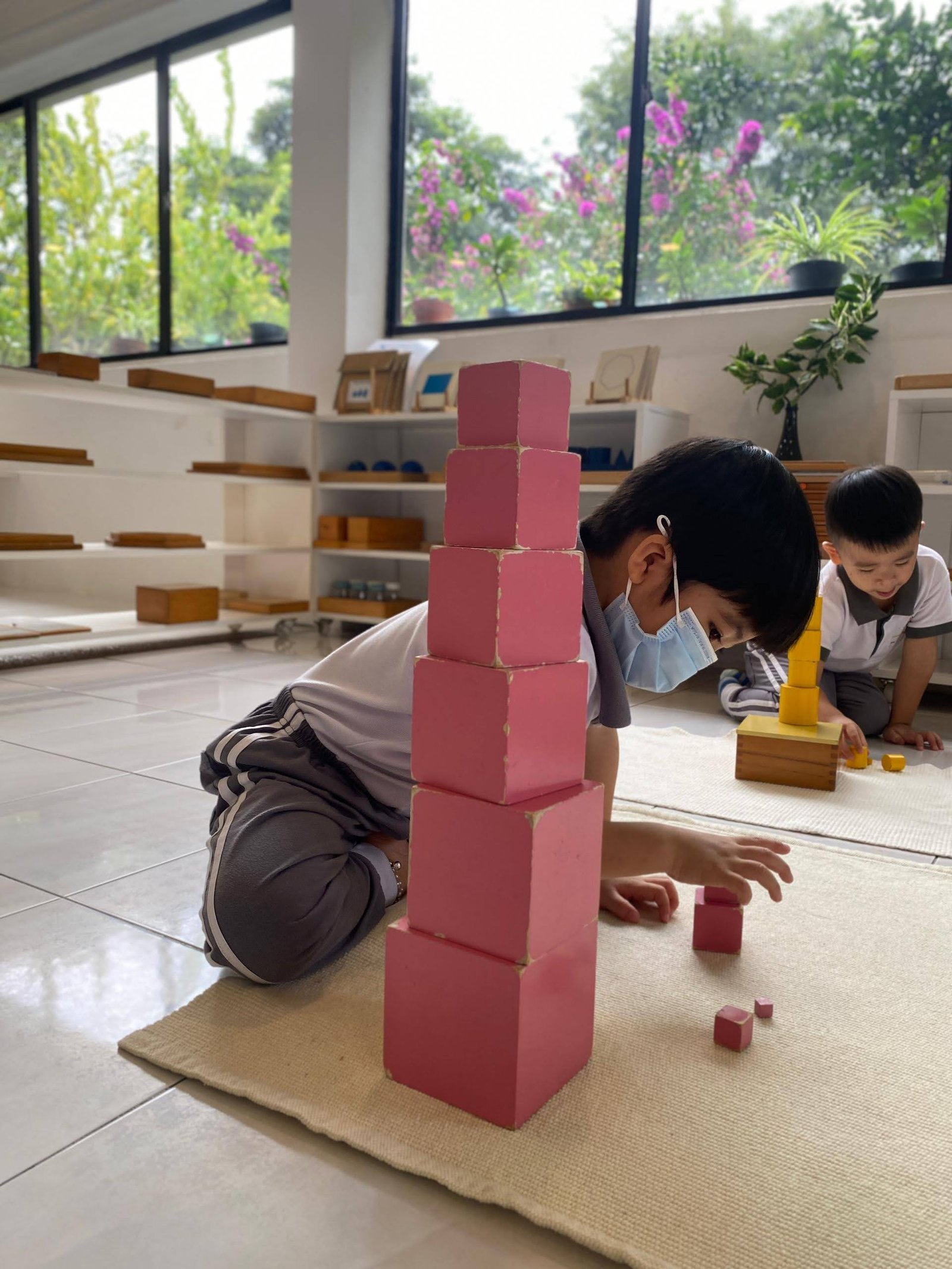
Sensorial activities help your child refine the five senses – tactile, visual, auditory, olfactory, and gustatory senses. Guided by basic Montessori principles, children learn to isolate quantities and experience control of error, which serves as preparation for their future learning. For example, many of the sensorial activities include ten pieces, providing an indirect preparation for the decimal system.
Furthermore, sensorial education enhances children’s ability to classify and organize information, fostering critical thinking and problem-solving skills. These activities also promote focused attention and memory retention, as children engage deeply with hands-on, multi-sensory materials.
By exploring sensorial materials, children develop their observational skills, spatial awareness, and an understanding of patterns, which are foundational for mathematical and scientific thinking. For instance, distinguishing textures or shapes hones their ability to analyze and compare, paving the way for advanced cognitive development.
In essence, sensorial activities not only build intelligence but also lay the groundwork for holistic and lifelong learning.

